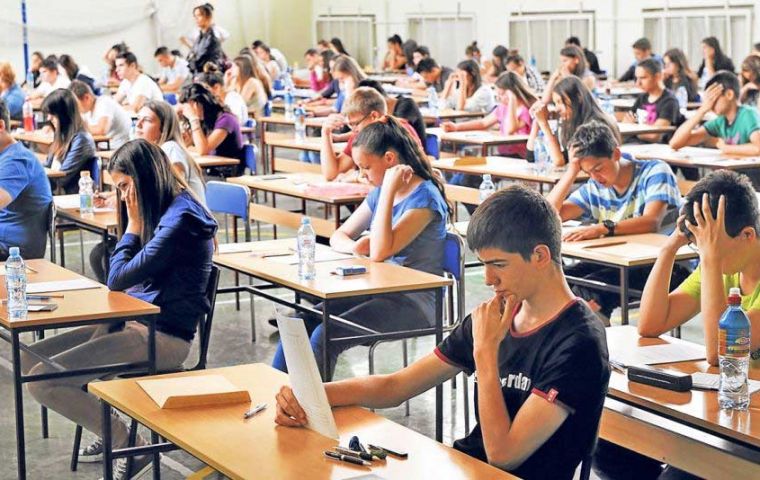MercoPress. South Atlantic News Agency
Brazil's Lower House passes homeschooling bill onto Senate
 /// Pupils will still need to enroll in a regular school and their process would be monitored by institutions, not just parents or caregivers
/// Pupils will still need to enroll in a regular school and their process would be monitored by institutions, not just parents or caregivers Brazil's Lower House Thursday passed a bill setting forth the conditions for homeschooling, a trend that has been growing globally following the COVID-19 lockdowns.
The basic draft had been approved Wednesday and lawmakers resumed voting Thursday to reject a series of amendments before passing the bill on to the Senate for final approval.
According to the proposal, to qualify for homeschooling, a student needs to be enrolled in a regular school, which will oversee the process. Parents interested in teaching their children at home must follow the Common National Curricular Base defined by the Ministry of Education. Additional subjects and disciplines might be included in the teaching routine.
At least one of the parents or guardians will also be required to provide proof of higher education or technological vocational education in a recognized course. They must also have no criminal record.
The bill also provides for the student's family and community life not to be affected and that educational activities are carried out to promote the student's complete development, taking into account his or her intellectual, emotional, physical, social, and cultural development.
It will be the parents' responsibility to keep periodic records of the activities and to send reports every three months to the educational institution where the student is enrolled.
The student must also participate in annual learning evaluations during the basic education cycle.
In primary and secondary education, in addition to these reports, there must be annual evaluation based on the curricular content, with the possibility of advancement in courses and grades, as outlined in the Law of Directives and Bases (LDB).
If the student's performance in this annual evaluation is considered unsatisfactory, a new evaluation will be offered the same year.
Those opposing the initiative claimed that it will take resources away from education and overload schools, which would have to promote periodic meetings for educational monitoring, information exchange, and application of exams. (Source: Agencia Brasil)




Top Comments
Disclaimer & comment rulesCommenting for this story is now closed.
If you have a Facebook account, become a fan and comment on our Facebook Page!